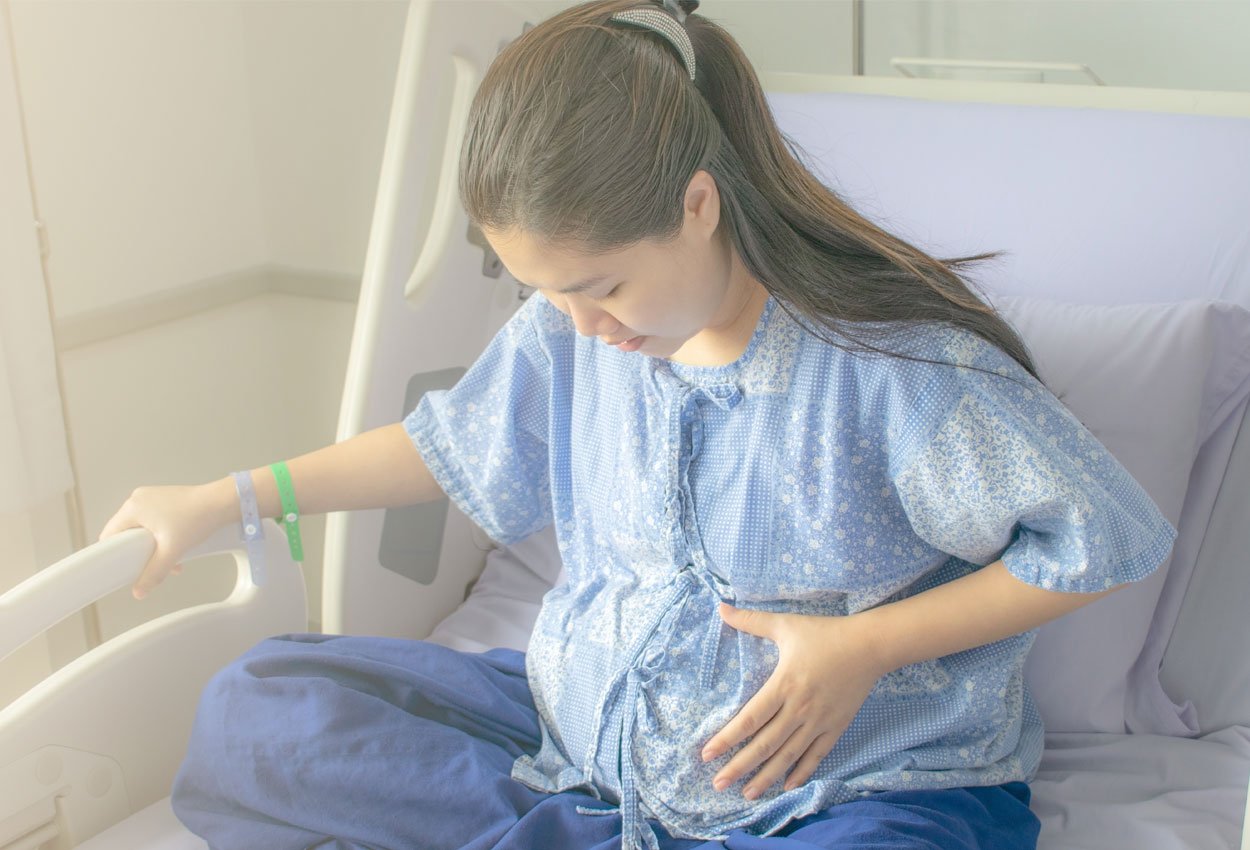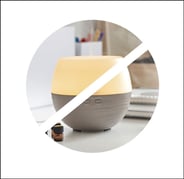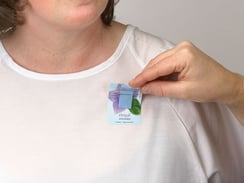
Women use aromatherapy / essential oils for many reasons as a holistic approach to self-care. Aromatherapy can help relax a woman through times of anxiousness, during pain, and sleeplessness.
A highly popular aromatherapy practice is the diffusion of one’s favorite essential oil(s) in the home. It is no surprise then that many women wish to use aromatherapy during one of the most exciting and scary times in their lives—labor & delivery.
With increasing focus on the patient experience, many hospitals have implemented aromatherapy programs as nurse-driven initiatives.
In the white paper “Aromatherapy Treatment—At the Heart of Patient Care ,” medical directors and nurses share their experiences with using aromatherapy.
One nursing manager said, “Everyone is concerned with improving the patient experience, and using aromatherapy to alleviate anxiety, nausea, pain, and more is an important step in that direction.”
As empowered women look to control their own experience, it has become common practice to request or bring a personal diffuser to the labor & delivery suite.
Using aromatherapy as an adjunct modality during labor & delivery can help with anxiousness and pain
In the clinical study abstract, “The Effectiveness of Aromatherapy in the Management of Labor Pain and Anxiety: A Systematic Review,” the authors discuss the results from 33 studies in which aromatherapy successfully helped laboring women with anxiousness and pain.
It was concluded in another randomized controlled study, “Efficacy of aromatherapy for reducing pain during labor,” that aromatherapy was best used for pain during latent and early active labor more so than late active labor. Aromatherapy has also been found to help with queasiness that often occurs during labor or after a caesarian delivery.
 Diffusers not as simple as they may appear
Diffusers not as simple as they may appear
In hospitals, Aromatherapy is most often administered through topical application or inhalation. Saskia v. Popescu discusses the risks of both methods, including diffusers, in her article, “Aromatherapy in Health Care Settings—A Source of Drug-Resistant Bacterial Infections.”
Though considered a simple tool, diffusers present many concerns and are not an ideal solution in the clinical setting. Safety measures for both the selected essential oils and their delivery methods must always be considered when writing an aromatherapy policy and establishing an aromatherapy program.
Diffusers, as Popescu points out, use heat or water to disperse essential oils into the air, exposing multiple people to the essential oils. In addition, the diffused essential oils may be picked up by a HVAC system and dispersed into unsuspecting areas of the hospital. Diffusers that use heat (battery or electrical) can potentially alter the chemical makeup of the essential oil(s), and therefore change the therapeutic benefits.
More concerning - diffusers that use water run the risk of exposing patients, employees, and visitors to water and non-water borne pathogens. These diffusers must be diligently cleaned and disinfected to protect against bacteria and molds.
A better way to provide inhalation aromatherapy in the clinical setting
There is, however, an alternative to diffusers that has been proven to be effective and safe and should be considered when using aromatherapy in hospitals.
Elequil aromatabs® is aromatherapy designed for the clinical setting. It is a cost-effective, multi-modal, nursing intervention.

Consistent and controlled, Elequil aromatabs are made with 100% pure essential oils and contain no synthetics or pesticides.
Seen as a preferred method by many infection preventionists, the individually sealed, self-adhesive, single-use aromatab eliminates those safety concerns associated with diffusers.
Elequil aromatabs have been used in over 2,000 healthcare facilities and are available in four aromas—Lavender-Sandalwood, Orange-Peppermint, Lavender, and Lavender-Peppermint.
 Carefully chosen, the essential oils found in Elequil aromatabs offer specific therapeutic benefits: sandalwood and lavender essential oils promote relaxation during pain; and can help comfort and calm anxiousness; orange essential oils help to uplift, and peppermint essential oils can help soothe queasiness.
Carefully chosen, the essential oils found in Elequil aromatabs offer specific therapeutic benefits: sandalwood and lavender essential oils promote relaxation during pain; and can help comfort and calm anxiousness; orange essential oils help to uplift, and peppermint essential oils can help soothe queasiness.
Elequil aromatabs are worn on the gown or clothing and work through gentle, passive inhalation, within one’s personal space - making it the ideal aromatherapy solution for labor & delivery.
To learn more about Elequil aromatabs and the benefits of clinical aromatherapy in labor and delivery, contact Beekley Medical at 1.800.233.5539 or email info@beekley.,com and ask about our trial evaluation program.

Laura Smith
Senior Clinical Product Specialist—Elequil aromatabs® | Certified Aromatherapist
